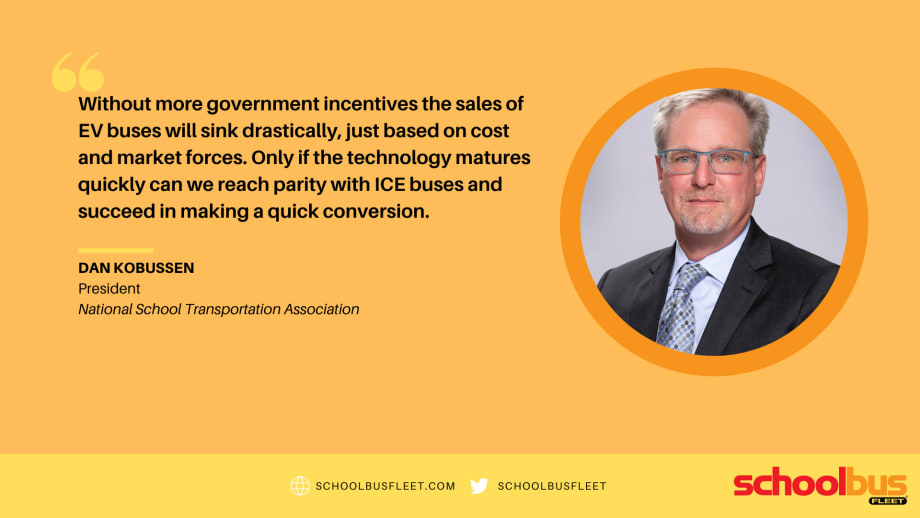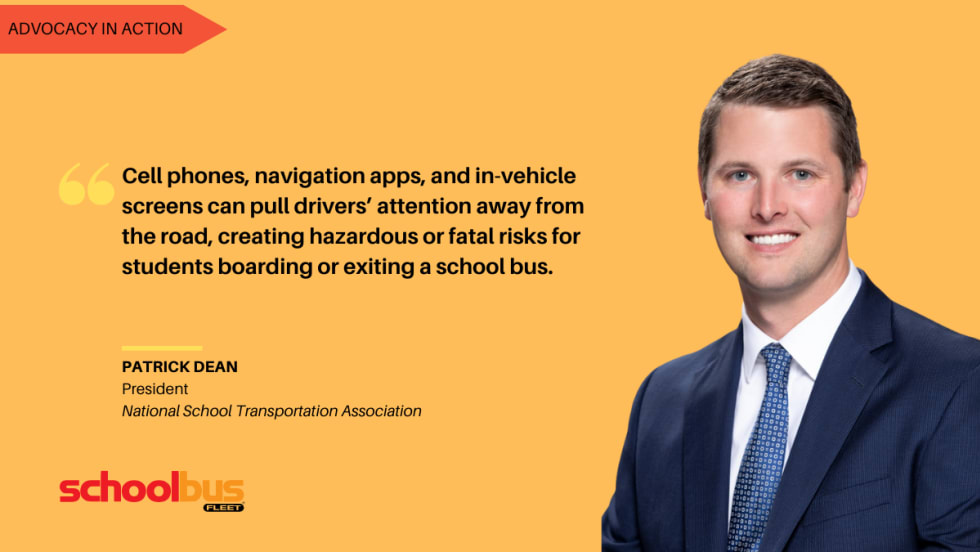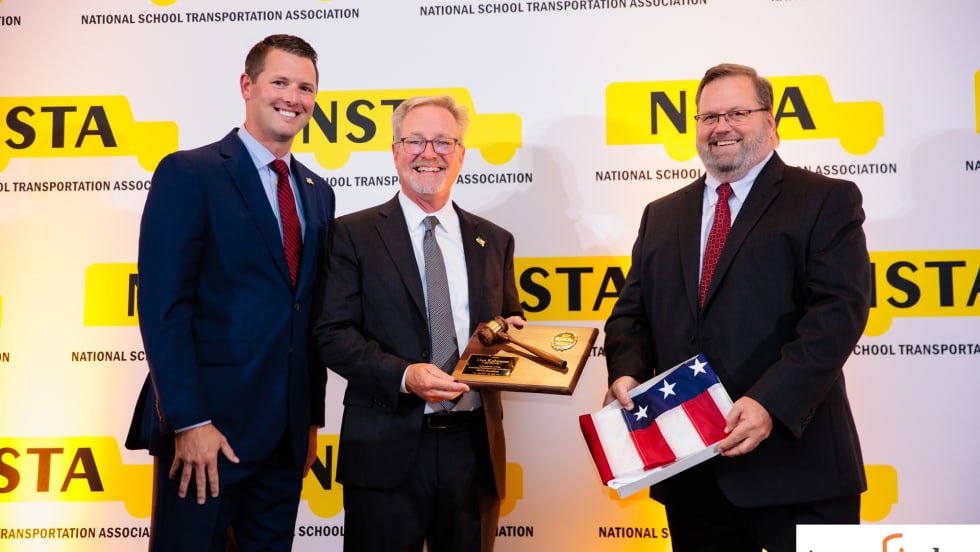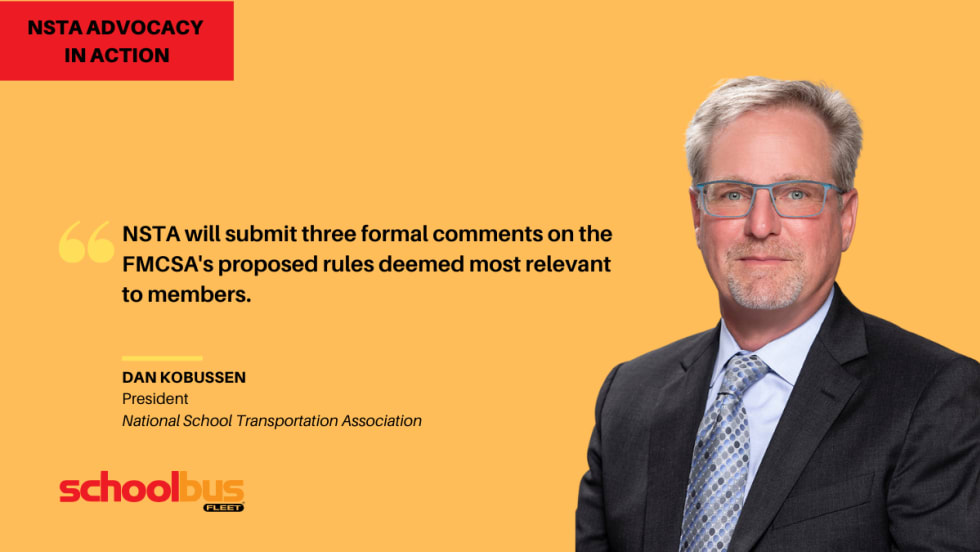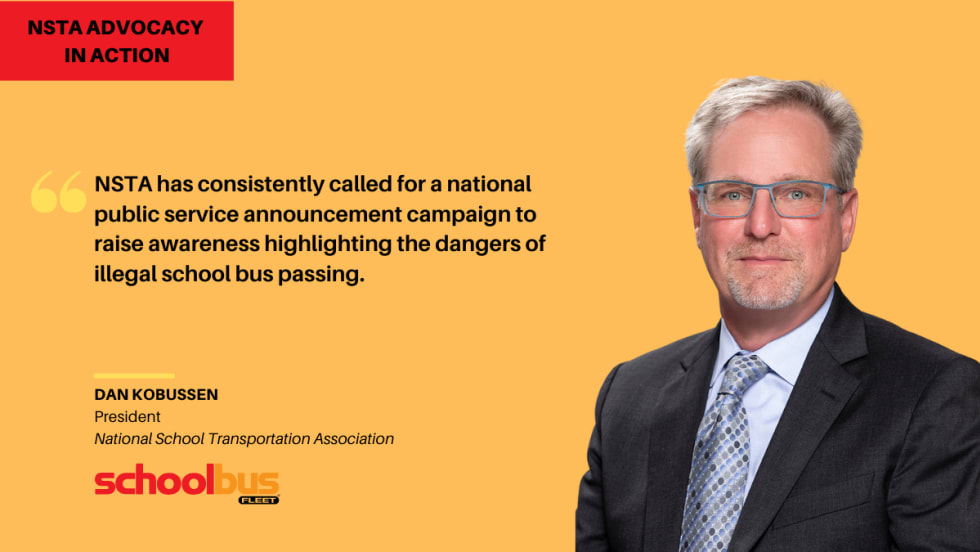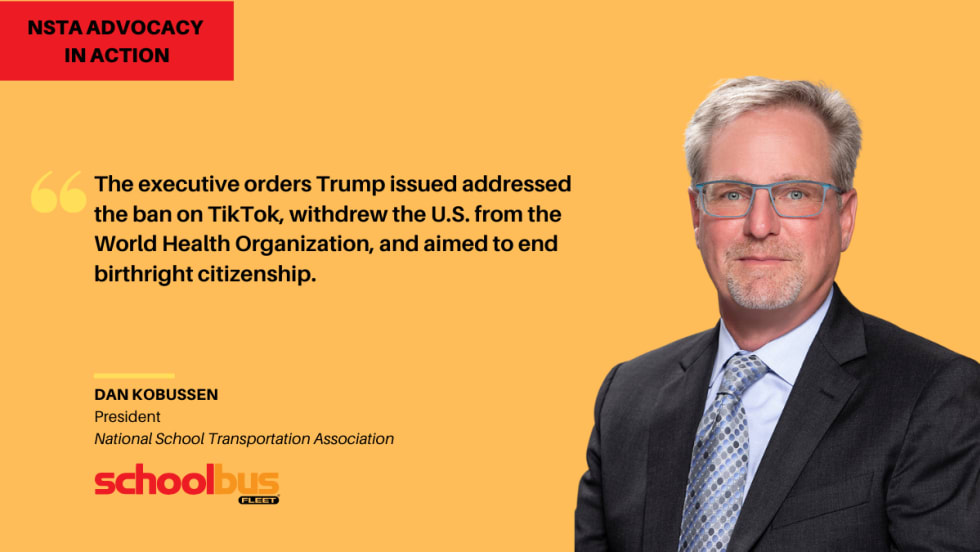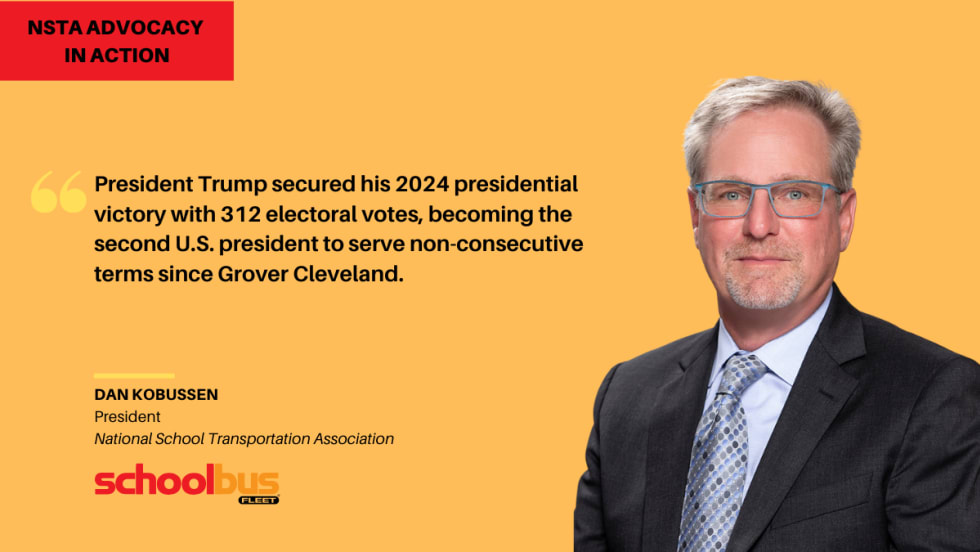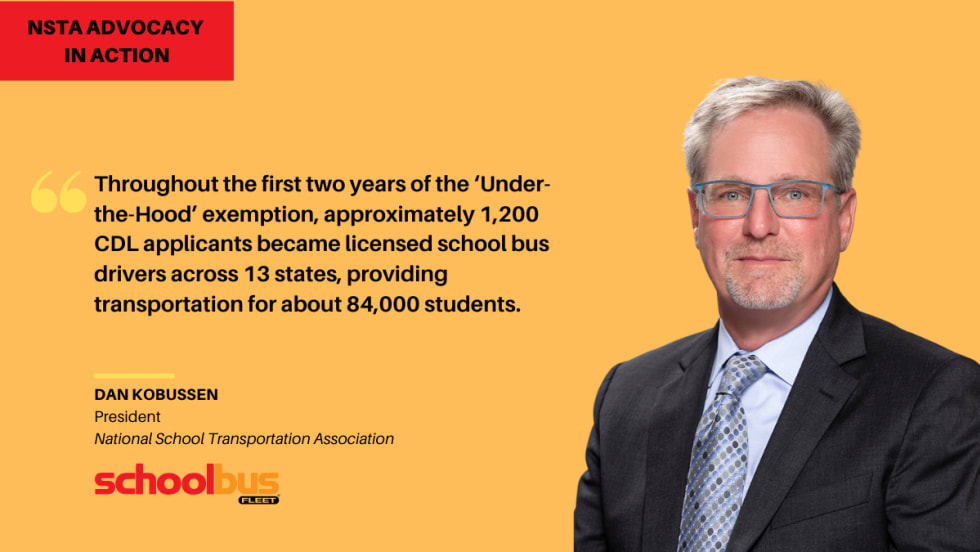Last column, I talked about several challenges and impediments to moving forward with electric school buses (ESBs). For this column, I would like to focus on a couple of the more positive aspects of this evolution.
The electric/drivetrain represents as much as 50% of the total cost of an ESB. This increased cost may force manufacturers to cut costs of other parts of the vehicle - possibly deleting items like knobs and switches (Tesla will soon eliminate turn signals and wiper stalks). Some of these items/options will be engineered around, but others will just be eliminated. How will this play out in a school bus world that has many different rules and options for each state? Will we see school buses with one large screen and no buttons?
As most people reading this column know, the school bus is the most regulated vehicle on the road, so this will be a difficult and slow shift. Soon, the National Congress on School Transportation (NCST) and ultimately the states will have to grapple with this new technology. Will this be the beginning of a single standard spec for all states? Perhaps this could help the manufacturers reduce their costs and offset the cost of the electric drivetrains.
As I mentioned last column, new, and more efficient battery technologies are on the horizon, which could change where and what type of metals are mined. With economics of scale, current battery technology costs should decrease over time. Lithium is down 20% over the past year, due to oversupply. Mining and refining these materials may ultimately go down in price but that cost only represents 20% of the total price tag of the battery. Approximately 80% of the cost of the battery is in the manufacturing process, which will only slowly decrease once a stable battery technology is established.
Batteries can be recycled, in laymen’s terms, when batteries no longer work, they are clogged up, not used up, about 85% of the metals can be reused for new batteries. Recycling used batteries or the metal in them could become a commodity like used steel and aluminum. Currently, batteries have $4,000k-$10,000 worth of materials for every ton of battery cell weight. So, battery recycling companies like Cirba and Li-cycle could replace significant amounts of raw material mining in the next couple decades and possibly reduce the cost of future batteries and environmental impact of mining.
Finally, regenerative brakes are the Holy Grail of why the transition to vehicle electrification should take place. This simple dynamic could possibly be the largest financial reason to move forward with electric vehicles, especially when you consider a heavy school bus that starts and stops often. A normal Internal Combustion Engine (ICE) bus with conventional brakes wastes all the energy when the driver steps on the brakes. In an EV or hybrid vehicle, this formerly unwanted energy, created by the simple act of braking, gets recaptured and stored in the batteries. The impact is so great that climbing a mountain in an EV doesn’t greatly affect mileage rates because the power to go up is recaptured when the vehicle comes back down.
There are 500,000 ICE school buses in the United States that need to be replaced. Currently there are 33,000 ICE and electric school buses produced each year. At the current production rate, it will take a minimum of 15 years to turn over the school bus fleet to electric. The Clean School Bus Program provides $5 billion over five years, which equates to 13,698 buses. That leaves 486,302 unfunded buses that cost approximately three times more than the average ICE bus that will rely on the open market to control pricing. Without more government incentives the sales of EV buses will sink drastically, just based on cost and market forces. Only if the technology matures quickly can we reach parity with ICE buses and succeed in making a quick conversion. With the current Clean School Bus program and with manufacturers investing millions into battery technology - we cannot turn back at this point. I hope we can get there sooner rather than later because it is going to be a painful conversion for those of us in the trenches.
I welcome your feedback. Please reach out to me at president@yellowbuses.orgon this or any other matter.



